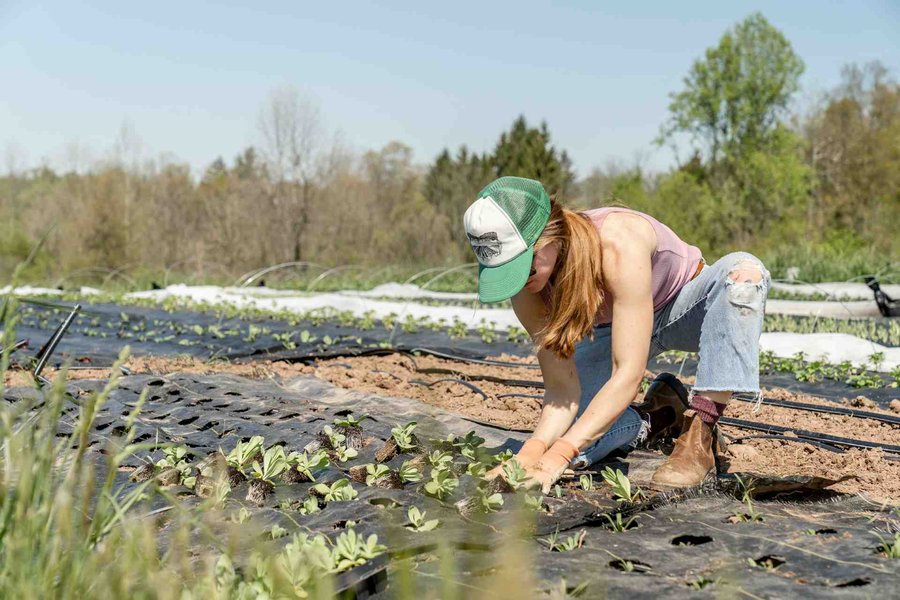What does forager vs. hunter mean?
In scientific literature, two basic human lifestyles are often compared: that of the gatherer and that of the hunter. These terms refer to different adaptations and life strategies that have developed in the course of human evolution.
Which type are you?
The gatherer represents a way of life based on agriculture and animal husbandry. This way of life is associated with sedentarization, in which humans establish permanent settlements and systematically practice agriculture. Agriculture enables a regular food supply and has created the basis for complex societies and the development of civilizations. This way of life requires specialized knowledge about the cultivation of plants and the care of animals as well as intensive use of natural resources.
This contrasts with the hunter, who leads a nomadic lifestyle based on hunting and gathering. Hunters and gatherers are mobile and often live in small groups. Their way of life is flexible and adaptable to different environmental conditions, as they are guided by the availability of wild animals and natural resources. This way of life requires extensive knowledge of the environment, especially of the habits of the animals and the seasonal availability of food sources.
Both lifestyles have a profound impact on the biological and cultural characteristics of the respective societies. The transition from a hunter-gatherer society to an agrarian society led to profound changes in the social structure, diet and health of people. The adaptations to these lifestyles are not only cultural, but also genetic, as different lifestyles can exert different selection pressures on the human population.

Good to know
Anthropological studies show that hunter-gatherers can have an impressively high level of life satisfaction despite their often harsher living conditions compared to agrarian societies, some of which suffer from stress and excessive demands.
Characteristics of the individual types
Characteristics of the gatherer
The Gatherer is typically characterized by a strong tendency to plan and organize. People who focus on farming have often developed the ability to develop long-term strategies and manage complex processes. These characteristics are reflected in the structuring of their daily work, in which systematic cultivation and harvesting cycles play a central role. Gatherers must carefully consider seasonal conditions and optimize their resources accordingly to ensure a successful harvest. These skills are crucial to meet the challenges of food production and resource management. In addition, gatherers are often characterized by a high sense of responsibility and resilience. The need to continuously provide for their own supply and deal with potential setbacks such as extreme weather or crop failure requires both physical and mental strength. The close connection with the soil and the crops they grow fosters a special kind of patience and perseverance that is necessary to succeed in farming. Foragers tend to be better adapted to a carbohydrate-rich diet and regular food intake. This can lead to greater efficiency in processing and storing glucose, which is associated with a higher risk of metabolic disease if the diet is unbalanced.
Characteristics of the mixed type
The mixed type shows a genetic adaptation to both regular and intermittent lifestyles. This flexibility reflects a balanced ability to adapt to both the stable conditions of farming and the variable conditions of hunting and gathering. It also makes it possible to respond efficiently to different environmental influences and food availability without being too fixed to a particular lifestyle. Mixed types show a balanced adaptation to both regular and intermittent feeding. This provides dietary flexibility, but can lead to suboptimal adaptation to extreme feeding conditions, which can result in variable metabolic responses.
Characteristics of the hunter
In contrast, the hunter is characterized by a high degree of flexibility and adaptability. The nomadic lifestyle of the hunter-gatherer requires the ability to react quickly to changes in their environment and adapt their strategies accordingly. Hunter-gatherers must develop a deep understanding of wildlife and the natural resources of their environment in order to hunt and gather effectively. This adaptability is reflected in their willingness to explore new routes and try different food sources depending on seasonal and geographical conditions. In addition, hunters are often characterized by a strong ability to cooperate and interact socially. In their way of life, it is essential to work effectively as a team, whether hunting or gathering food. This ability to cooperate fosters strong social bonds within the group while requiring strategic thinking and problem-solving skills to get the best possible results from their activities. The hunter type is well adapted to intermittent feeding and physical activity. This adaptation may support the ability to utilize glucose effectively under irregular dietary conditions, but there may be an increased risk for challenges with constant energy intake and very high carbohydrate diets.
![[Report Bild]](/static/reportImages/J%C3%A4ger2.jpg)